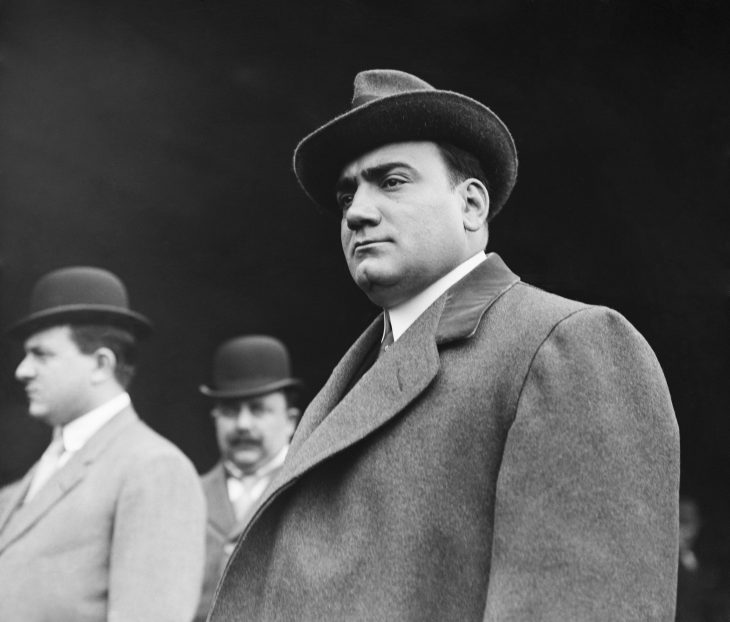When it comes to voices, the words of the apocryphal Times headline come to mind: ‘Fog in the Channel; Continent cut off’. It’s one sign of the deep cultural differences between ‘us’ and ‘them’, which maybe made Brexit inevitable.
You might not think a taste in voices would have any connection with this cultural divide. But for me, an Italian-born and trained soprano, who speaks opera’s mother tongue, it seems blindingly obvious. It strikes me that Brits in general have very different ideas of what an operatic voice should sound like, compared to the Italians, Spanish, French, Germans and also, interestingly enough, the Americans. My American fellow students at the Royal College of Music expressed the feeling that the Brits ‘like small voices, finely refined, jewellery voices packaged in small boxes.’
This explains why Ermonela Jaho was recently acclaimed at the Royal Opera House in the role of Butterfly. She certainly is a great artist with a beautifully refined voice, but it is surely too small to make her the ideal Cio-Cio-San. This mismatch between voice and role was a problem at the work’s première at La Scala in 1904. The leading soprano on that occasion was Rosina Storchio, a light lyric voice. After extensive cutting and rewriting Puccini turned the opera into a smash hit a few months later at the Teatro Grande in Brescia, this time with the heavier dramatic voice of Salomea Krusceniski in the title role. Over the years, Cio-Cio-San has mostly been cast with weighty voices, and it is easy to understand why. At many points in the second act Puccini’s lush orchestration overwhelms a light voice, such as during the duet with Sharpless, or the final section of Butterfly’s famous solo ‘Un bel dì vedremo’.
Nevertheless the jewel-like voice of Jaho has not been an issue for the Covent Garden audiences. Things get even tougher to understand for a Mediterranean ear when one considers the widespread taste for the use of falsetto in male voices. I don’t mean the British love affair with the countertenor voice, which to most Italians is deeply strange, but rather the high heady tone used by some tenors when the going gets tough.
For an Italian this just seems a cop-out. For us, the use of falsetto has been practically banished from Italian opera since the age of Enrico Caruso. He created the ‘modern’ tenor, an archetypal voice preserved in his magnificent recordings and emulated by subsequent generations of singers, such as Gigli, Lauri-Volpi, Del Monaco and Pavarotti, to name just a few. Given that fact, to hear ‘Un’aura amorosa’ from Mozart’s Così fan tutte performed throughout in the falsetto register at the Royal Opera House last winter seemed very awkward – and yet the audience went crazy.
Sometimes it’s hard to know quite what British taste is, as audiences applaud so indiscriminately. It’s true that the British have a different taste in vibrato to Italians, a point made by all the chroniclers of opera, including M. Scott and J.B. Steane. But the response to Gregory Kunde as Manrico in Verdi’s Il trovatore that we heard back in January at Covent Garden suggests that in fact the Brits have no taste at all. Maybe Kunde was tired at the performance I was attending, but his vibrato was more like a wobble, and the high C of ‘La pira’ was simply not there. The audience’s complacent clapping on that occasion was silenced by a bunch of Italians expressing their disapproval with raucous cries of ‘VERGOGNA!!!’ (‘Shame on you’).
Are Brits too polite to shout their disapproval inside a theatre? Is it a squeamish inability to express unpleasant thoughts or feelings? If that’s so I wonder: is the taste for flat, pale, undernourished ‘early music’ voices a sign of that emotional restraint? Could it be that the luscious, sexually-charged voice of the ‘modern’ tenor — who historically made the choice to abandon the falsetto, a register Caruso insisted ‘does not legitimately belong to the tenor’s compass’ — is perceived by British audiences as just too hot and a bit threatening? Dare I suggest that the Brits adore a certain thin, angular tenor precisely because he’s so unthreatening? The rule of ‘No sex please, we’re British’, still applies when it comes to singers.






Comments